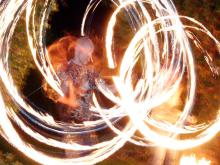social networks

AFTER THE NOVEMBER 2024 elections, I felt called to local community action. As I voiced despair to my therapist over the demise of democracy on a national level, she asked, “What is within your circle of control?” A friend had just decided to run for mayor of our town. This was one area where I could do something.
As a journalist, I typically don’t support specific candidates publicly. This time, I left my neutral observer role to get in the local political trenches as a volunteer campaign team member. Even at this level, it gets nasty — mudslinging, blatant lies, threats, bribes, and all those things that give regular folks a bellyache.
Long story short, my friend and our slate of city council candidates won. I’m still amazed by the fact that ordinary people who wanted change unseated five incumbents bent on preserving the status quo.
Reflecting back on how we did it, and how we might do it again, one strategy rises to the surface: We activated our social networks.

Religion is increasingly viewed as highly politicized, not least due to the way that it is frequently covered in the news. Numerous studies have shown that news stories with emotional cues tend to both gain audience attention and prolong audience engagement.
It may therefore come as no surprise that online debates about religion are packed with emotional cues that evoke strong reactions from those who participate in them. This sets the stage for passionate online debates.
Piano-playing cats or union organizing drives—Google and Facebook don’t care. They just keep a sieve in the flow to collect information that can be sold to advertisers.